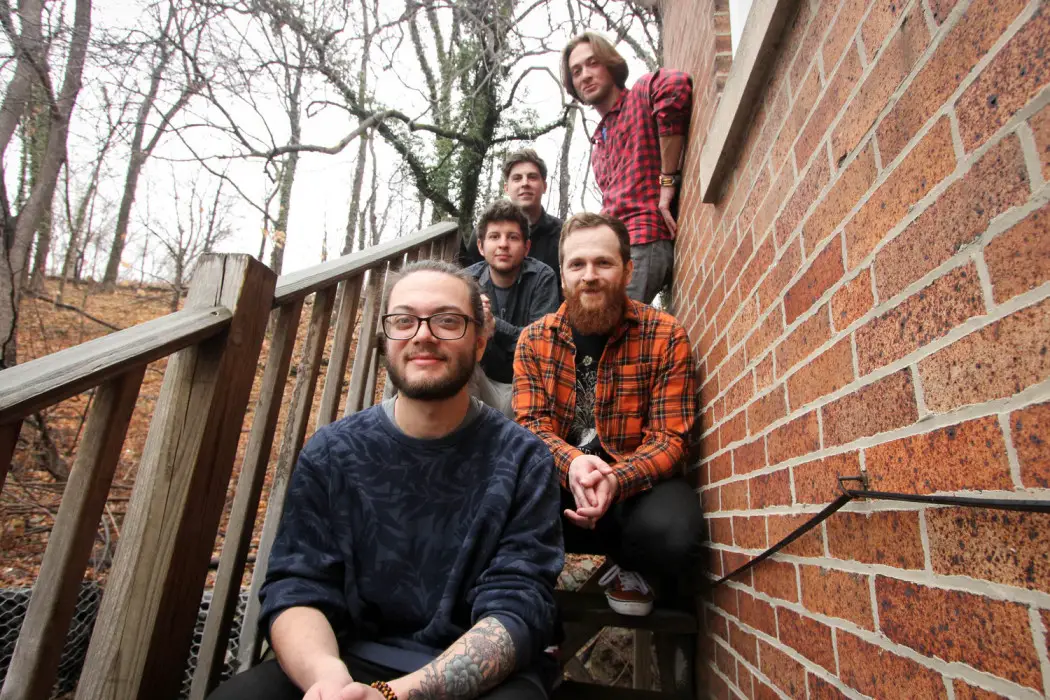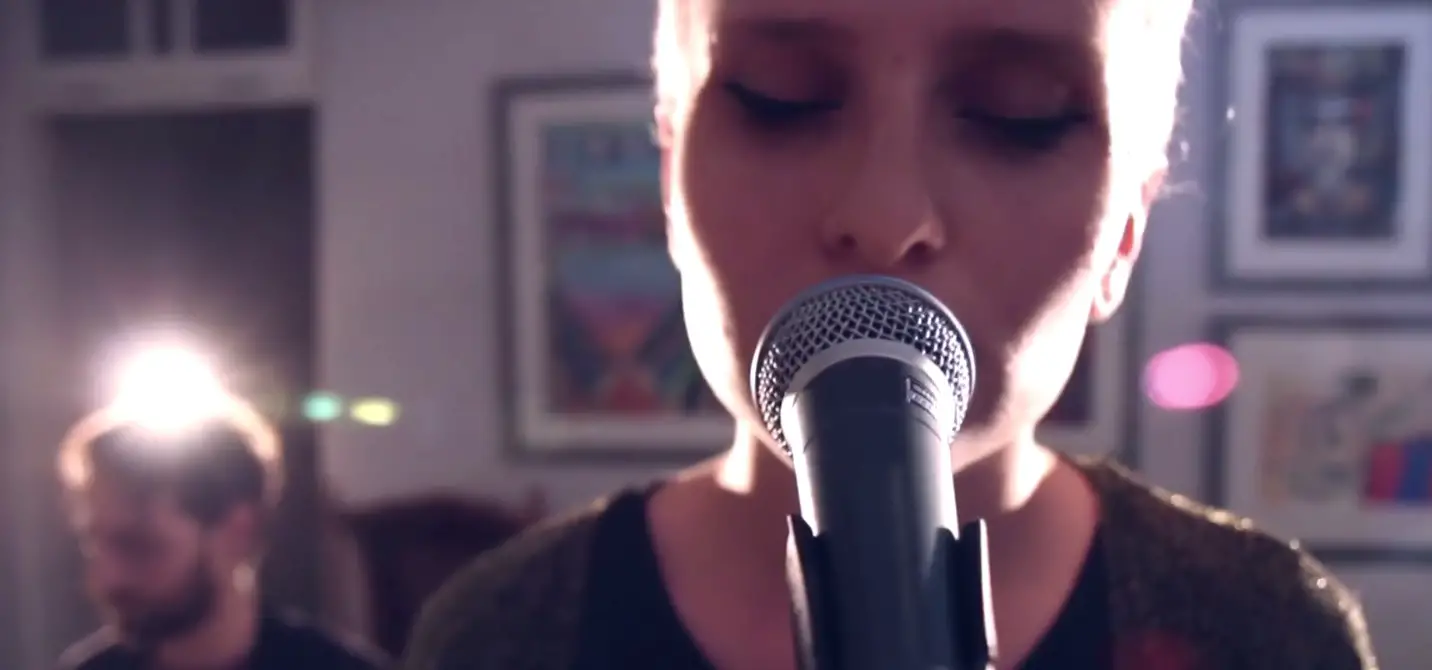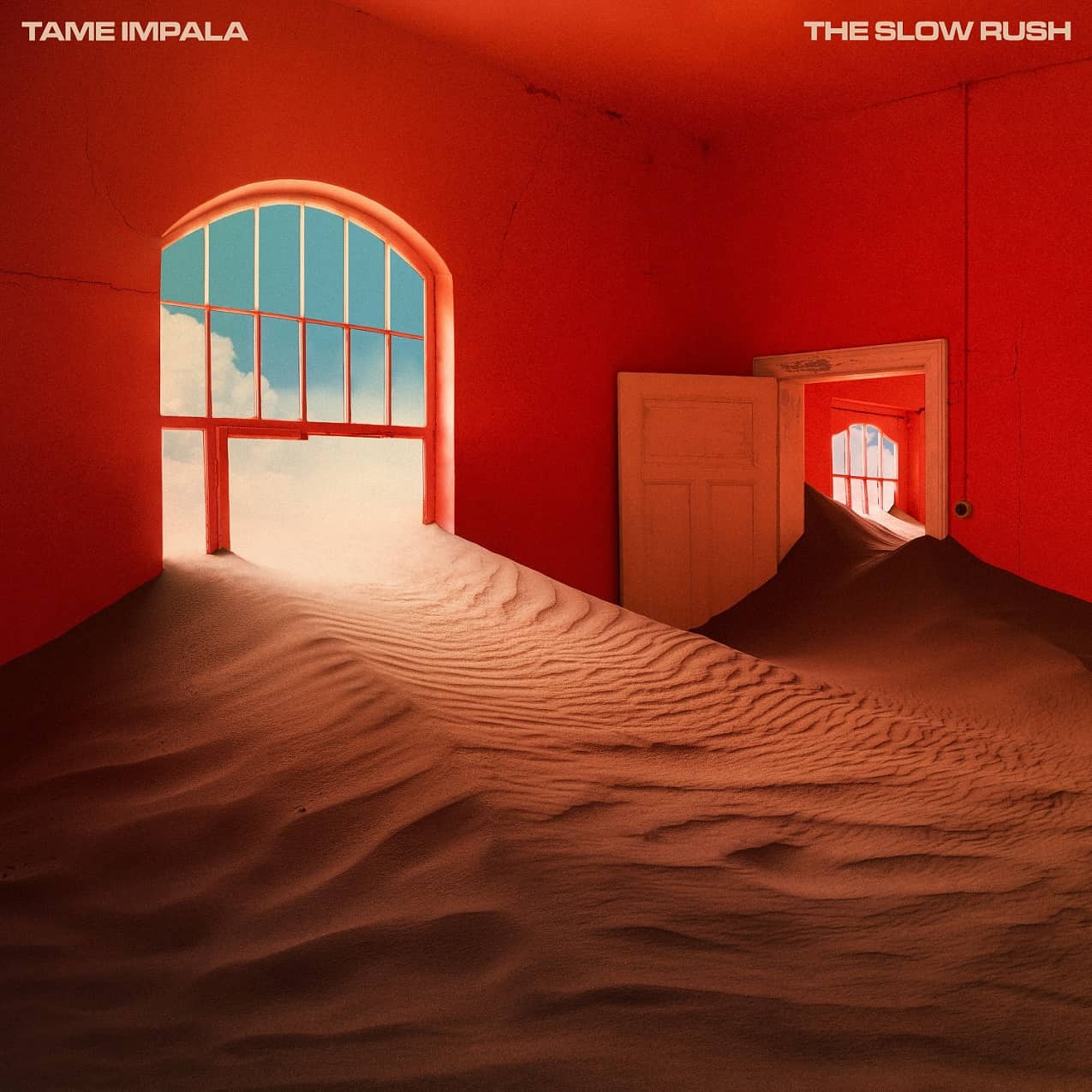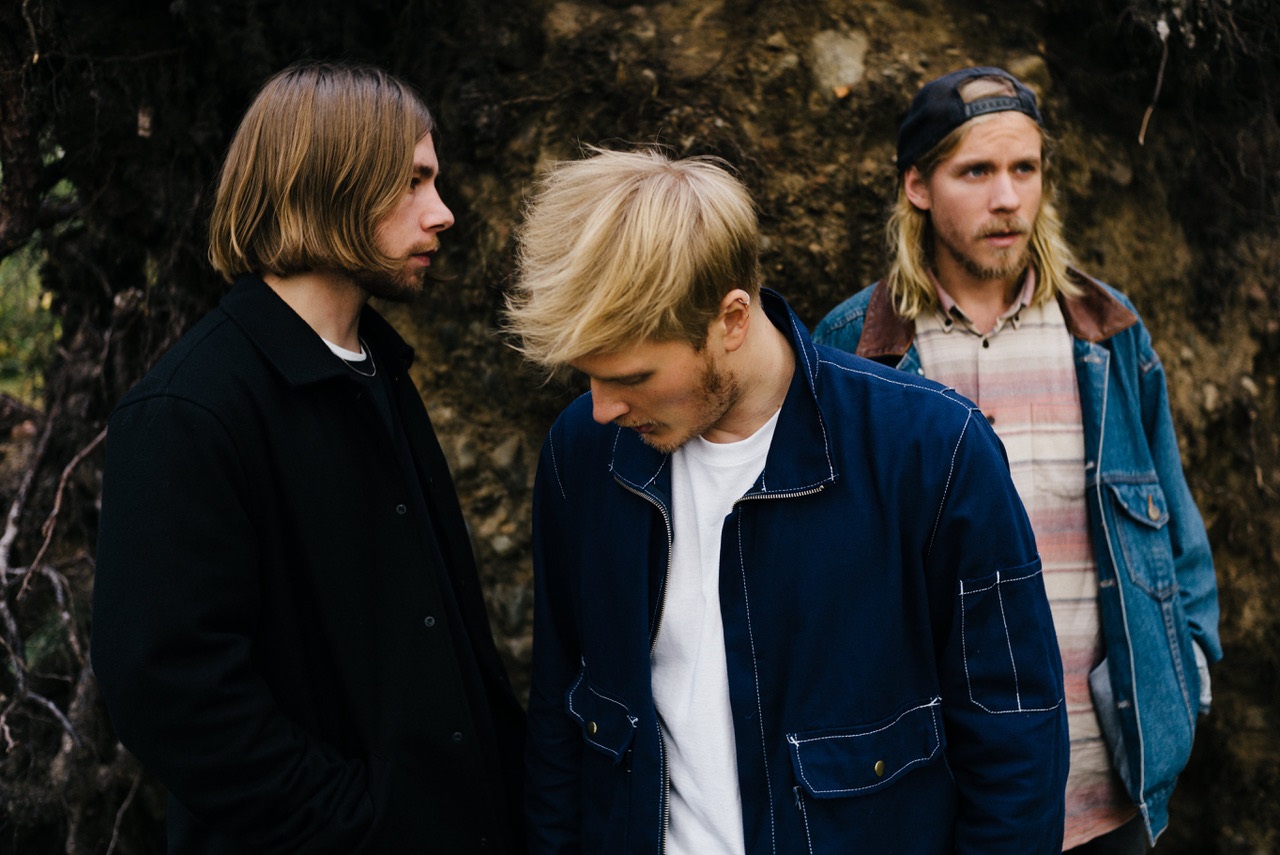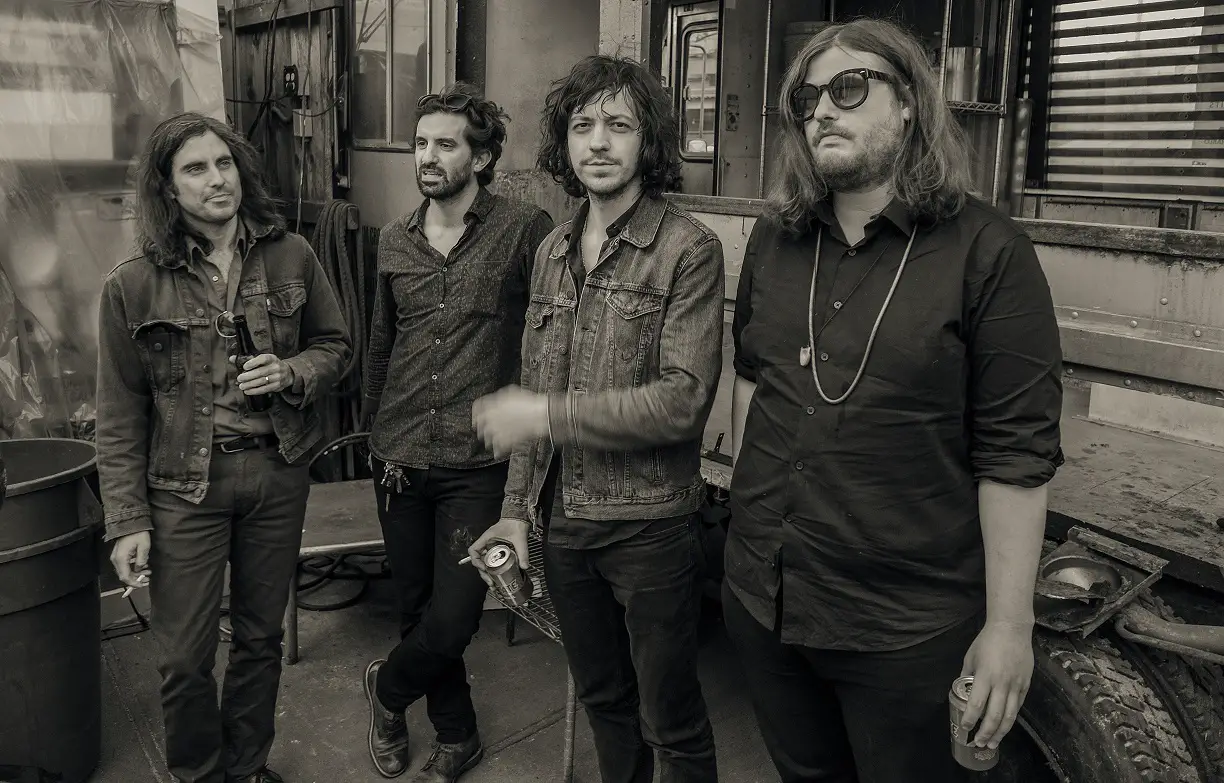Philadelphia is the locus of a practical indie rock renaissance. Tiny Hueman is the product of that creative environment: they talk creative democracy, radio appearances, and Fred Durst.
It’s the dead of winter in the northern hemisphere and a nor’easter bears down on Philadelphia. Snow squalls batter pedestrians and the wind shrieks banshee-like through urban canyons.
A line extends out from a middle-aged house – not old enough to be historic, not new enough to be luxurious, but at least it’s heated. Doc Martens squeak on bowed wood floors, a doorman warns guests to watch themselves. Muffled sound like a generator pounds below, ricocheting off stone walls and up a narrow stairwell. If you were deaf, you could still feel it.
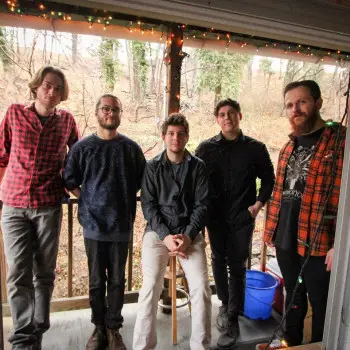
The city is the locus of a practical indie rock renaissance, spuriously interrupted by the odd football related riot. Even in this weather, you go out anyway because that’s just what everyone’s doing. This is the creative environment that Tiny Hueman emerged from. Honest and intimate, but with razor sharp skill to push their musical boundaries in whatever direction they please.
Consisting of Richie Hollahan (Vocals), Dustin Miller (Guitar), Kevin Miller (Drums), Vinny Vaccaro (Guitar/Piano), and Richie Taver (Bass), Tiny Hueman are a rising rock band from the Philadelphia area. In their short time on the scene, they have already been featured on numerous radio programs, worked with legends like Ryan Schwabe (Modern Baseball, We Were Promised Jetpacks), and had their music on VICELAND.
Tiny Hueman spoke with Atwood Magazine about creative democracy, local licks, and really long basketball shorts.
A CONVERSATION WITH TINY HUEMAN
Atwood Magazine: One of the first things people will see googling you guys is that you got your start playing live on 104.5. That’s pretty huge right out of the gate. How’d you snag that gig?
KEVIN MILLER: We had been going back and forth with Wendy Rollins who used to be in charge of 104.5, or at least one of the main DJs, and we’ve looked to her for advice on different things. She’s been pretty interested from the first time we recorded something, so she’s been a lot of help. So she actually got us that gig. She’s down in Atlanta now, so maybe we can do something down there at some point.
DUSTIN MILLER: Richie [Hollahan] and I had thrown together a demo we recorded in his basement, which I think was three or four songs with one being a cover, and we had sent it into Jesse at 104.5 as well as Wendy Rollins, and they both came to like it a lot and told us we should do a Live at 5 and that’s kinda how it happened from there.
And what was it like? Were there nerves, and how was the response?
RICHIE HOLLAHAN: It was a little nerve wracking. I personally hadn’t really sang in front of many people which – there weren’t many people there which made it a little easier [laughs], but it was still pretty wild to think of how many people could have been listening to us live at that moment. That was pretty cool.
DM: It was definitely a good opportunity for us because we were able to kindle a working relationship and friendship with two of the DJs there, Jesse and Amber, so we stayed in touch with them throughout the years. About a month, month and a half ago Amber and Jesse were playing our song “Supercell” three or four weeks in a row on their Sunday night new music show. So that was pretty awesome, and I totally credit having met them and staying in touch with them.
RH: It was kind of an unexpected thing and the reception from family and friends was like, “oh yeah you’re doing another band thing” and then hearing that like, “oh, oh you’re a real band.” We were just instantly taken more seriously.
So, what does everyone play? Are you all brand agnostic or is there something that really helps you play the “Tiny Hueman” sound, something that helps you shift gears between those really fuzzy passages and the clean arpeggiated stuff?
VINNY VACCARO: We all just kinda play around, you know? I feel like we’re all trying out different stuff. I don’t feel like Tiny Hueman really has a sound yet. I think that’s something that’s going to slowly develop, and even after that we’re going to experiment with sound.
I know the Philly indie scene is pretty tightly knit - we probably have some mutual friends, actually - and really vibrant recently, so I’d love to hear about your experiences there.
RICHIE TAVER: I’ve been involved in some sort of music scene here since I was a kid. My first show was at the First Unitarian Church when my brother used to play in bands, that might have been when I was 8 or 10 or something like that, and uh…who is beeping?
RH: That’s me.
RT: Put your phone on mute dude.
RH: Sorry, I’m trying to make a pizza, dude.
[scattered laughter]
RT: Yeah I guess I’ve just been in the Philly scene just like going to shows for a long time, since like middle school, high school, meeting friends. I played in a couple random backing bands, not so much rock and roll or indie, but I was doing stuff with hip hop for a while.
Then I started meeting people through live sound and recording and it just like – everyone kind of knows each other, it’s crazy. There’s like a big renaissance of music going on but somehow everyone’s connected.
DM: I’ve played at house shows, that’s always an exciting, interesting scene. Low-fi kidna basement shows are really cool.
KM: They get very intimate which is cool because you actually get good interaction with a lot of the people. Playing at a bar is awesome and you can talk to people after the fact but, I feel like at a house show you get to actually know a lot of the crowd, and you have more time hanging out with them. It’s a cool experience.
RT: As far as DIY shows go, I actually host DIY shows at my house monthly. That’s been going on for a couple years.
You just recently released a new single, “Supercell,” tell me about that one. What was the songwriting process like for that?
RT: That started off with Dustin. I think he had a formulated idea of a chord progression basically in its entirety. Then we probably jammed on it a few times and starting building it up from a chord progression and ultimately we decided to keep everything in house. So like, we knew we wanted to put out a single at that point because we hadn’t released any new material in a while.
So we decided to do everything ourselves: produce it ourselves, record it ourselves, produce it, mix it. Then we sent it off to a mastering engineer by the name of Ryan Schwabe who does a lot of the alt rock scene in Philly. If you look him up, his credits are endless and you probably know every single one of the albums and songs he’s done.
That was basically it – we uploaded it online, got some guy to push press for it for a while, the whole process was really cool.
DM: Even though I had the initial riff, we all built especially the bridge together, with Taver and Vinny throwing in chords, Kevin with certain rhythm sections, and Richie Hollahan wrote all the lyrics. Richie Taver also mixed and engineered the entire thing and put a lot of time into it, dealing with me and everyone else – probably especially me – asking for minute changes in the mx so, he had a very heavy hand in that.
KM: Yeah, we really do a great job of collaborating and making sure we all have influence in the final product. You know, it always turns into a very well shared vision and it’s something I like a lot about our writing process compared to previous bands.
RH: We always try to find the parameters of our sound and push them. If we feel like we’re writing too much stuff that has the same vibe, we always try to throw in a of of other stuff. We’re always playing with stuff, and our collaboration is crucial in bringing that out – just trying to make sure everyone is included in how it sounds and you know like – is this something you wanna put out?
RT: It’s a democratic process, for sure.
Is that how the process has been since the beginning?
VV: Me and Dustin always had a democratic process with stuff, so anytime we added someone we had to make sure like, “do we like what they make in general?” And if yes, okay, then let’s make some stuff.
KM: We’ve progressively gotten better at it. I think it’s always been there and it’s just gotten stronger as time went on. With the first EP, I came in and expanded on drum ideas that were already in place and it went from there. I think Shallow leading into Drift was the first time we got a really intimate and heavily hashed out individual process from each of us.
DM: I know for me, Shallow is very barebones and you hear a big difference sonically, especially with guitars, on Drift and “Supercell.” I feel like I’m a pretty decent guitarist, but I was the only one playing guitar on Shallow and my lead skills aren’t nearly as developed as Vinny’s are, so I think that really shows from Shallow to Drift. The guitars have a lot more variability, texture, and epicness when we added Vinny for sure.
RT: Yeah, and despite the EPs having a certain sound in the way everything was recorded and written, when it comes to live sound we always try to include something new. We’ll like, change something in a song really quick when we’re rehearing so we can include something new in a show. Maybe Vinny will take some extra solos. I think our audience really appreciates that, because it breaks up the minutiae of playing everything the same start to finish.
That’s a really good place to segue into influences. This question was coming, obviously, but I wanted to ask not just about musical influences but you know, bands, writers, friends and family, stupid Twitter counts, or your astrological symbol are all viable answers.
VV: I just want to say, first and foremost, I think I can collectively say for all five of us that Fred Durst is our biggest influence.
[raucous laughter]
RH: Without a doubt [continued laughter], you gotta keep that in there!
VV: Question answered, next.
RH: I’m really going for that whole frontman style. I notice he’s growing a beard out a bit, not sure if I can do that now, but I’m definitely trying to do the ridiculous cap and really long basketball shorts and go “Yeah!” as much as possible.
[laughter]
KM: It’s not necessarily reflected in each song, but my biggest influence is Rickie Mazzotta from mewithoutyou. I think that he has – it’s something about his style. It’s not even that he plays the most insanely complicated stuff all the time, it’s that everything he does fits and has a unique personality. It always complements the song just right, I think it’s such a hard thing to do to not under- or overdo the drumming.
Then my dad has had me playing drums since 4 or 5 so I wouldn’t have committed to it nearly as hard without him.
RH: I’m really all over the place as far as what inspired me music wise, but something I always come back to is Soul Coffin, this like jazz grunge band from the 90s. Their singer drives some people nuts, but they got funky ass basslines and I love their singer so much. A lot of 90s in general – rap, Counting Crows, but grunge was huge.
People around me inspire me big time too. That’s where I pull lyrics from a lot of times, blow stuff out of proportion and piece it together with what the band is feeling.
VV: Mars Volta is huge for me. Omar’s guitar textures and the weird shit he does is awesome, and a huge influence for me. All the weird pedals and weird mods he uses have been a big influence.
I like a lot of gypsy jazz. Just insane players and extremely inspiring.
DM: I mean The Beatles are my favorite band of all time. It doesn’t necessarily come out in the music, but they inspire me all the time. Super into Chon too – again we don’t really sound like them at all, but they have some really great guitar players.
RT: I grew up listening to The Beatles, Queen, classic rock, but I didn’t even start playing bass until I joined Tiny Hueman. So I started listening to bass a lot more heavily, so right now I’m listening to a lot of Motown: Nathan Watts, Stevie Wonder, basically anything that has some sort of a groove behind it. Lots of hip hop, for sure.
What’s on your heavy rotation right now? Any amazing albums I should listen to or best of 2018 opinions?
RT: As far as 2018 goes, I’ve actually started forcing myself to start listening to current music, my 2018 playlist is like 150 songs. But right now, I’m listening to a lot of 80s that I never got a chance to you know: The Cure, Kate Bush.
RH: We’ve been doing this thing the past couple weeks where everybody picks an album, which has been an awesome way to broaden our horizons. But yeah, Anderson Paak, Daytona, and a bunch of 90s grunge.
KM: Been listening to a lot of the new mewithoutyou album, a ton of the album Bloom from Zoology last year. Cigarettes After Sex, but yeah, mewithoutyou was by default the top album of last year.
So, your music also got used in VICELAND! That’s pretty exciting. How’d they approach you for that and what was the response like?
DM: It just crossed my mind one day like, “it would be cool if we could get our music on this channel.” So I did some researching online and found their music director and reached out, almost like a cold call, over email and pitched our music and our band to her. We heard back surprisingly quickly, and then several months later she confirmed that we were gonna be in an episode.
RH: Yeah, that was one of the most real moments, watching that. I watch a lot of VICELAND and I remember being at my friends house and being like, “wow, is this real? This is crazy!”
KM: A couple people involved with the episode even gave us some love on Instagram. It was just cool to be on someone’s radar.
Well, last thing: Gimmie any plugs you got. Where can people find your music, what can we expect from you in 2019 and when, and I’d like each of your opinions on the best track to start with.
DM: We’re everywhere, just @tinyhueman!
RH: Yo, and check out “Supercell”! If you don’t like that, check out Drift. If you don’t like that, check out Shallow! If you don’t like that, we’ve got more stuff coming. If you don’t like that, there’s no helping you.
Awesome. Thank you, Tiny Hueman, it was great talking to you.
— — — —
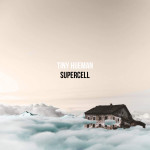
Connect to Tiny Hueman on
Fbook, Twitter, Insta, SoundCloud
Discover new music on Atwood Magazine
? © Marisa Riley

